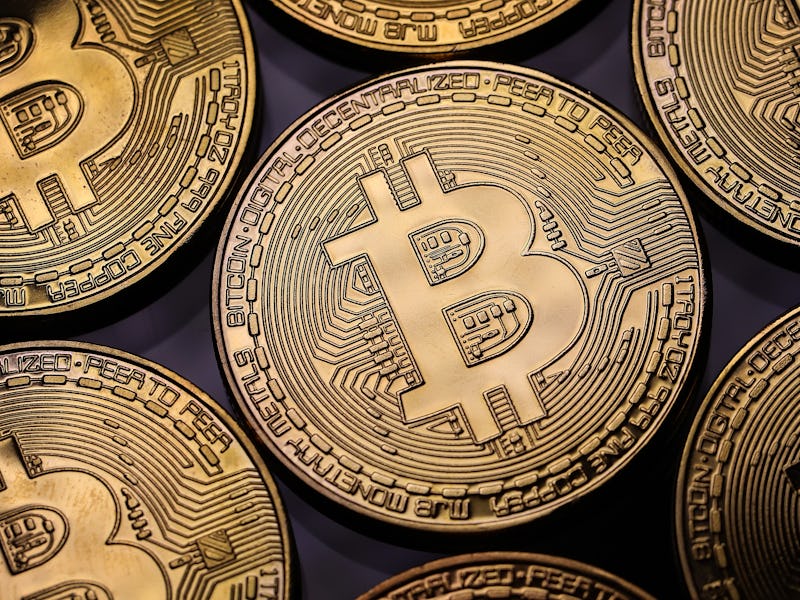Bitcoin's Energy Consumption is Killing the Planet, but There is a Solution
The network uses about the same amount of electricity as Serbia.

Right now, bitcoin is an environmental disaster. Although it seems like the cryptocurrency is on the rise with a spike in price to reach $16,000, an explosive new analysis published last month showed how Bitcoin poses a serious environmental problem.
“I talk to people about bitcoin, sometimes tell them about this energy consumption, then I say ‘okay, shall I demo a bitcoin transaction?’” Alex de Vries, author of the Digiconomist article that sparked the conversation, tells Inverse, “They say ‘no, no, that’s wasteful!’”
Wasteful is one word for it. De Vries’ analysis showed that the blockchain-based cryptocurrency’s annual electricity consumption is around 32.36 terawatt-hours, around the same amount of energy used by the entire country of Serbia. He also showed that all of Visa’s transactions use about the same amount of energy as 50,000 households, while Bitcoin uses nearly three million houses’ worth.
Something is seriously wrong here, but there are solutions that could make Bitcoin into a greener currency.
First, a quick primer. Unlike a regular currency that’s issued by a central bank, bitcoins are issued by computers hooked up to the internet solving math problems. Miners verify transactions on the network, bundle them up, link it up to the previous block, and then try to solve what’s called the proof-of-work problem.
This is to show the amount of work done to find a hash that’s acceptable, and it’s meant to be difficult as a way of showing that the miner used a good amount of processing power to get the coin. It’s not that the energy used is what determines the value of bitcoin, but the processing power is what makes the bitcoin’s production meaningful in the first place, just like the fact a dollar is printed at the U.S. Mint is what makes it actual legal tender.
In the beginning, people used regular computer parts to get these coins. Some people have proposed using the energy from mining for secondary uses. Comino, for example, has developed a space heater capable of warming up a room while its processors mine for coins.
“Equipped with eight powerful GPUs, in the future, Comino could become the software center of the smarthome,” Vasily Rybak, a representative for Comino, tells Inverse. “It’s our next big idea. But now we are starting with offering people smart warmth.”
Watch the Comino in action here.
One of the other advancements in Bitcoin efficiency is the rise of the application-specific integrated circuit, also known as ASIC. These are far more efficient than GPUs. Where the best GPUs will achieve one million hashes per joule of energy, the Antminer S9 can reach around 10 billion hashes per joule.
That sounds great, but looks can be deceiving. De Vries explains that the biggest benefit of more efficient miners is faster mining, rather than any serious cutbacks in consumption. In China, where electricity is around eight cents per kilowatt-hour compared to the United States rate of 12 cents, that means big mining potential. Bitmain’s mine on the outskirts of the northern Chinese city of Ordos is one of the largest in the world, has a daily electricity bill of $39,000 for its 25,000 machines, and accounted for four percent of the network’s total power in August.
“There are more large facilities appearing with more efficient machines, and they’re actually making the situation worse because they’re paying a lot less for electricity than they could before,” De Vries says. “We’re getting cheap electricity, so we can fit in more electricity.”
ASIC Bitcoin Miner at ATechRes in 2013.
So if efficiency might actually make things worse, where do we go from here? De Vries proposes using proof of stake instead, which would involve proving that someone holds coins or another stake in the cryptocurrency. This is more energy efficient than the current proof of work standard, which involves solving that processing-intensive problem to demonstrate ownership, and it’s based around the principle that whoever has the most stake also has the loudest voice. That has its own problems, though.
“The following question will help you understand the extent of the problem — How wise does it sound that a few people control the world’s computer?” Mohit Mamoria, CEO of cryptocurrency hedge fund Authorito Capital, said in a recent Medium post.
If the community can’t agree on a solution, they risk a “fork” that splits the currency, like Bitcoin Cash that makes transactions faster, and Bitcoin Gold that blocks out ASICs to make mining fairer.
Neither have overtaken Bitcoin in terms of use. And that doesn’t bode well for a more energy-efficient crytocurrency taking the place of the current preeminent bitcoin.
“The coin that doesn’t change is the one that ends up on top every time, and that’s not a very positive signal for the future of bitcoin,” De Vries says.